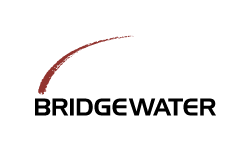Bridgewater Associates: More than just luck

Bridgewater Associates’ operating model, making investment decisions collectively following thorough and logical discussions, enables them to effectively utilize its intellectual capital to win in the capital market at higher probability than its competitors do.
I chose Bridgewater Associates, an investment management firm founded by Ray Dalio, as a highly effective organization at driving alignment between its operating and business models. Its operating model, which is making investment decisions collectively as an entire organization following thorough and logical discussions, enables Bridgewater to effectively execute its business model, which is utilizing its intellectual capital to win in the capital market at higher probability than its competitors do. This firm is a good example of how firm can earn competitive advantage over others by adopting an operating model that truly fits its business model.
Business model: As an investment management firm, Bridgewater’s business model is to bet on a series of probability games utilizing its intellectual capital and win these bets at higher probability than its competitors do. Since outsmarting the market is really hard, even the best investment managers win only around 55-60% of their betting (in other words, even the best managers lose 40-45% of their bets in general). In such environment, Bridgewater aims to outperform the market by collectively accumulating past investment knowledge and making well-reasoned decisions together with number of smart employees. By doing so, Bridgewater tries to outperform its competitors, who tend to rely on knowledge and decision-making analyses of only few analysts.
Operating model: Bridgewater is unique in its operating model that, unlike many other investment funds where each investment managers makes his/her own decision, Bridgewater makes investment decisions collectively as an entire organization. Moreover, the employee compensations are largely based on the performance of the firm’s performance and not an individual performance metrics, unlike many other hedge funds that compensate on individual performance basis. Bridgewater is also known for its corporate culture that encourages extreme transparency and the elimination of the decision making hierarchy.
These operating model enables Bridgewater to fully utilize its intellectual capital and outperform the market, thereby supporting its business model. By making investment decisions together as a firm, Bridgewater incorporates more intellectual capital into investment decisions than typical funds do. By tying the employee compensations to the entire firm’s performance, Bridgewater incentives employees to fully contribute their insights into investment decisions. Furthermore, by encouraging transparency and eliminating decision making hierarchy, Bridgewater prevents politics to intervene in the transformation of intellectual capital into investment decisions. Bridgewater even records and stores most of its meetings, thereby facilitating the intellectual capital accumulations. In these ways, Bridgewater’s operating model supports its business model of transforming the intellectual capital into well-reasoned decisions and gives them competitive advantage in investments. This operating model also gives sustainable competitive advantage because the culture of extreme transparency and anti-hierarchy attracts those unique talents who are willing to enjoy these collective knowledge-buildings.
The implication of this well-aligned business and operating model is a great investment return in the long-run. In fact, in the 37 years since Ray Dalio founded the Bridgewater Associates, Bridgewater had grown to approximately $120 billion in assets under management in mid-2012, with an excellent track record.



Hey Ken, I totally agree with you that Bridgewater is an example of a well-aligned business and operating model. It seems like the ‘extreme transparency’ and ‘elimination of the decision making hierarchy’ you talk about help Bridgewater make more rational, objective decisions, and spot mistakes more easily. One thing I’ve been wondering about is the extent to which the operating model is dependent on Ray Dalio. He is such an extreme personality… I wonder whether it’s possible to start (and maintain) an operating model like Bridgewater’s without someone so forceful. Great job on your analysis!
– Molly